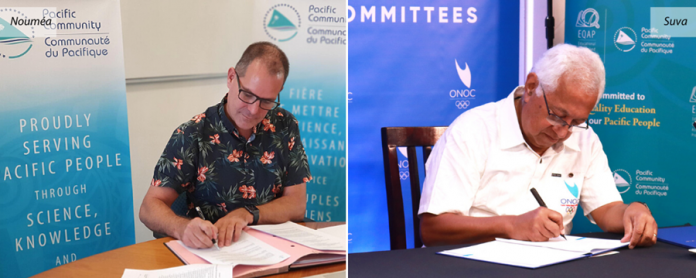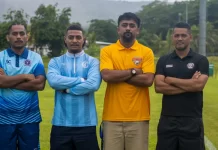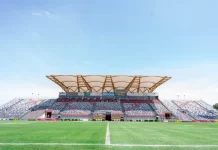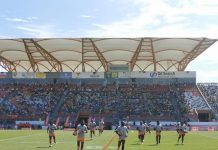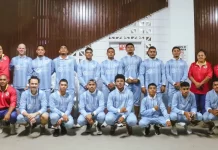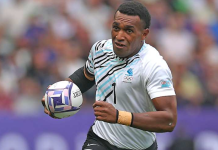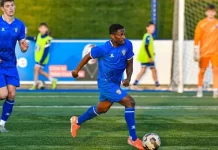A partnership agreement signed today between the Oceania National Olympic Committees (ONOC) and the Pacific Community (SPC) has set the stage for the Pacific’s sporting sector to strengthen career pathways, technical expertise and administration skills across the region.
The Memorandum of Understanding commits ONOC’s Oceania Sport Education Programme (OSEP) to accredit its courses against the Pacific Qualifications Framework (PQF). The accreditation process and the registration of OSEP’s realigned training courses on the Pacific Register of Qualifications and Standards will be implemented with the assistance of SPC’s education division, the Educational Quality and Assessment Programme (EQAP).
ONOC President Dr Robin Mitchell highlighted the significance of the agreement saying, “This milestone is critical to the Pacific islands in two ways, first in positioning sport as a key enabler of the Sustainable Development Goals (SDGs) in Pacific island countries, a fact already recognised by the United Nations and linked to the Olympic Movement. And secondly, as a core part of global recovery plans from the ongoing COVID-19 pandemic.”
OSEP is a regional sports education programme designed to build the capacity of Pacific based coaches, administrators and trainers utilising a regional approach of collaboration. It is currently delivered across 15 Pacific island countries and is only community-based sport education programme of its kind. With this agreement, the training programs will move towards even greater international recognition.
The global sporting sector was worth USD$500 billion in 2020 and the Pacific can engage in increasing its stake through professionally recognised qualifications.
SPC’s Director-General Dr Stuart Minchin emphasised the benefits of ensuring those who invest time and resources to learn are rewarded with appropriate qualifications.
“SPC’s initiative on accreditation of short courses fills an important gap in the enhancement of the quality of education and training,” said Dr Minchin. “Being able to use these micro-qualifications to support and strengthen the Pacific’s sporting sector will bring long term economic benefits to the region and help to highlight the rich sporting culture and traditions of the Pacific.”
Investing in sport is a global priority and a key component pf the Sustainable Development Goals (SDGs), contributing directly to SDG3 on health and wellbeing, SDG4 on quality education, SDG on gender equality, SDG8 on decent work and economic growth, and SDG10 on reducing inequality.
Dr Mitchell further stressed how this agreement compliments the ONOC strategic objectives, “This is one of the strongest steps we can take toward our Olympic Agenda 2020+5 Recommendation 10 which is to ‘strengthen the role of sport as an important enabler for the SDGs”. Recognition of sport and now its formal qualifications through this partnership with SPC means our Pacific people can have a better chance at sport performance, livelihoods, health and wellbeing.”
The MOU runs from 2021 to 2024 and is geared to increase the capacity of Pacific sport coaches, administrators, and managers toward the growth of a Pacific sport industry that develops world class sportspeople that jointly contribute to Pacific economies.
SOURCE: ONOC MEDIA/EQAP SPC/PACNEWS






